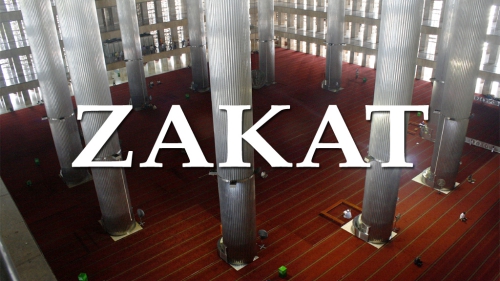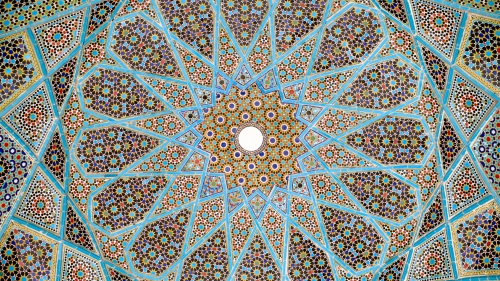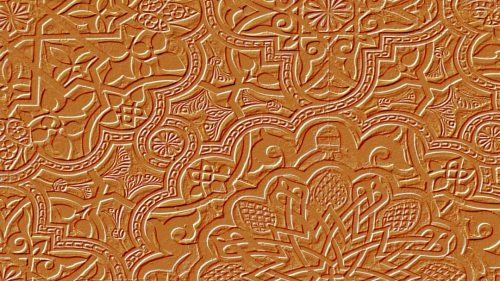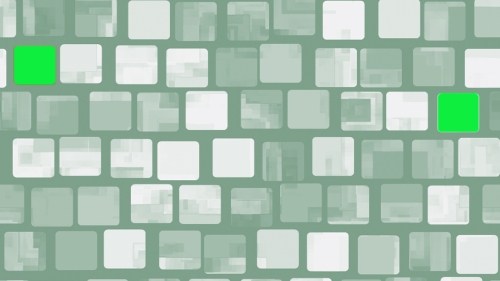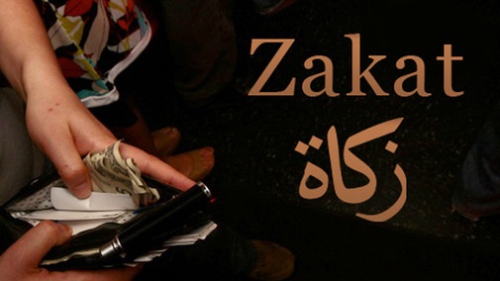The Qur'an - A Unique Miracle
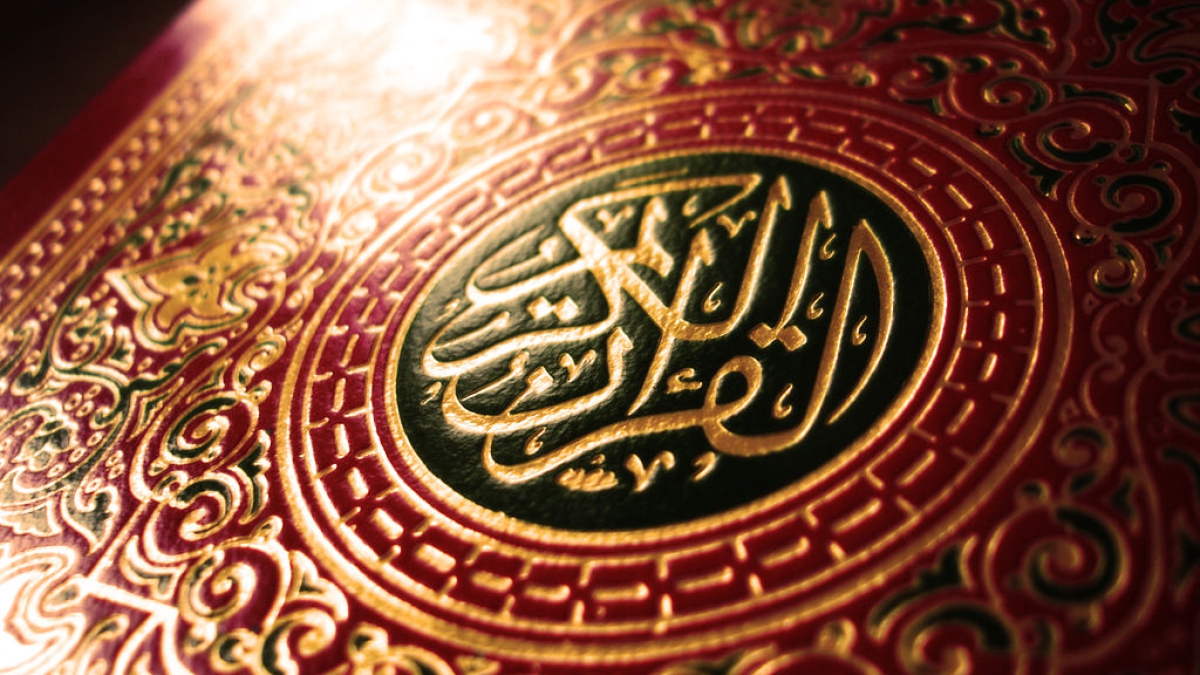
The Qur'an severally challenges its critics that it is not composed by any human but is the word of God, the Glorified, and Exalted. This challenge is first given in the following verses: "Or do they say , 'He fabricated the Message'? Nay, they have no faith! Let them then produce a recital like unto it -If it be they speak the Truth" (Al Tur 52:33-34).
This challenge is given not only to deniers at the time of its revelation, but is addressed for all times to those who deny its divine origins. It was repeated three more times in Mecca and for the last time in Medina (for this see Yunus 10:37; Hud 11:13; Bani Israel 17:88; Al Baqarah 2:23). And the fact is that no one could respond to it either at that time or ever since.
Some critics respond that this applies not only to the Qur'an but to all great literature, for example, that of Homer, Shakespeare, Goethe, Iqbal - in that they are all unique in their style, and therefore irreproducible. But they are mistaken in that the actual challenge is to produce not only in the Arabic but in any language anywhere in the world a book that possesses the unique characteristics of Qur'an, which make it a miracle. Some of these unique characteristics are discussed in this chapter.
Qur'an's Unique Features
1. The language in which Qur'an is revealed presents its highest and most perfect form of Arabic literature. Its every word and sentence meets the best of criteria devised, and so does its subject matter. To emphasize a certain idea, for example, it repeats the same subject matter a number of times, yet this description comes afresh each time. From the first sentence to last, its words are knit harmoniously and beautifully together. And its message is so effective that a listener - even an opponent, cannot help but get enamored by the very sound of its words.
Muhammad M. Pickthall, an English Muslim translator of Qur'an, describes this phenomenon in these words: "... the Glorious Qur'an, that inimitable symphony, the very sounds of which move men to tears and ecstasy."
More than 1,400 years have passed since its revelation, yet Qur'an is the best specimen of its language, and no other book comes close to it - it serves as the ultimate literary criterion for the Arabic language. While most languages have either vanished or greatly metamorphosed over such a long period, it is only the Qur'an that has kept Arabic as a living progressive language. None of its words have become obsolete and its every idiom is very much in use today. Rather, it serves as the best of literary examples, and is quoted often to make a valid point or to stress it authoritatively.
2. Qur'an is the only book that has had and still carries an unparalleled effect on human thought, ethics, morality, civilization, and mode of living. It first affected a group of people and as they rose built a polity and affected others, brought them uniquely together into an Ummah- and set a golden era in the history of humankind. No other book has rendered a comparable revolution. Thus the Qur'an did not just advance a unique theory, but its every word was actually put into practice by changing the mode of thinking of people that created a lasting world civilization.
Its revolutionary appeal initiated some 1,400 years ago has continued over centuries - now appearing in Arab awakening and to continue across the Muslim world. And spilling over into Europe and Americas, and into the unforeseen futures to come.
3. Qur'an's subject matter is vast and comprehensive - encompassing the entirety of existence from initial stages into its future. It discusses the reality of universe, its beginning and end, its make-up and its organization. It tells us who is its Creator, its Organizer, and its Lord? What are His attributes? And what is the basis on which He has organized the entire worldly system? It enunciates the position of man in this world, and delineates his rightful position in it - a position which is beyond human capacity to modify. It delineates the correct human conduct to accord with his rightful position, and what would violate that position. And it presents evidence in support - from all aspects of the universe, from a human's own nature and from his history. Alongside this, it tells why and for what reasons people have stumbled into wrongful ways. And what sources they could use to correct themselves and live righteously.
In fact, the Qur'an charts out a comprehensive scheme of life that encompasses beliefs, ethics and morality, acts of worships, culture, civilization, economics, politics, law and all other areas of human activity - which fit together harmoniously constituting a wholesome system of life for the betterment of humankind.
In addition, it discusses in detail the consequences that follow the right versus the wrong human conduct in the life of this world - and into another world after this life ends. The Qur'an describes accounts of the reality of the Hereafter and its various stages in detail, such that a complete picture emerges in how we will live through another life. It tells how an accountability of our actions here in this worldly life would be carried out there into the Hereafter. And the consequent rewards and punishments in that life.
The Qur'an covers the subject matter of this vast area with an assured certainty because its author is the one who has full knowledge of the reality, observes all there is and knows all of the facts. The entire world is like an open book to Him, not only from its beginning to its end but after its end into another world - all at the same time. His guidance for humankind is not based on conjecture and speculation, but on knowledge that is certain, without any doubt whatever. As an example consider its astonishing descriptions of the consequential scenes in the Hereafter juxtaposed to the human actions in this word's life - as if to tell us if you do this, such would be the result. And thus to warn us, because in fact none of the facts presented in the Qur'an have proven false - since it is from all knowing Lord of all that exists or will come to exist.
The concepts of universe and humankind presented in the Qur'an offer an explanation for the underlying factors that are naturally connected, and together they constitute a complete, coordinated and comprehensive system. It presents a way of life that is sound and very logical and is actually followed by numerous men and women around the world living a righteous life. And more than any other faith its message attracts every day numerous others towards it - to seek its guidance to live in peace and tranquility.
4. The Qur'an did not come all at one time, but it started with a reformation movement among the people it initially addressed and with very forceful instructions. And as this movement continued for 23 years it passed through various stages and its leader addressed them according to their needs and requirements. At the completion of this mission, its various portions were put together into a complete book - the Qur'an. According to leader of the movement, its discourses and sentences were not formulated by him but revealed to him by the Creator and Lord of the universe.
If someone considers Qur'an a creation of its leader, then he should present an example of such a man who led a movement like this and was constantly involved in numerous ways - as a preacher and moral teacher, an organizer of a victimized group, as a ruler of a state, as a general of an army, as a conqueror of lands, and as an expert and explainer of what he advocated. Then collect his speeches given at various times and locations in all of these capacities and formulate them into a complete, coordinated and comprehensive book. Such that from its beginning until its end it has the same central theme and flow of ideas; and what was said on day one of its inception conformed to what it said at its end and builds an all-encompassing edifice of beliefs and actions. So that a conscientious reader would naturally feel that its author had a complete view of the entire picture right from its beginning, and never changed his understanding or strategy because of the intervening circumstances or his being unaware of any of them. Obviously, no one else but only a supernatural God could perform such an overwhelmingly enormous undertaking.
5. The leader who delivered the Qur'anic messages was well known to its people, from its beginning until its end. He would not go into hiding somewhere and come out from time to time with a marvelous message. They knew the way and manner of his own speech - much of it available today in the collections of sayings (Ahadith, plural of Hadith) of Muhammad (PBUH). Although great, yet they are in no way comparable to the speeches he delivered as Qur'an. This distinction is even clear when a quotation from the Quran appears within the words of the Prophet (PBUH).
Murad Hoffman, Germany's ambassador to Algeria and Morocco (1987-94) and former director of information for NATO in his book "Islam and Qur'an" has pointed out that a variety of linguistic analytical tools used by modern sciences have confirmed that all of the Qur'anic text is the product of one entity. And that it differs completely from the sayings of Muhammad (PBUH).
6. The Prophet (PBUH) during his life was subjected to a variety of situations - for a number of years he became the target of ridicule and innuendoes and was subjected to cruel and insulting treatment. His companions were tortured to the extent that they had to go into exile. While in Mecca they, along with the Prophet (PBUH) had to endure poverty and starvation. His enemies conspired to kill him, and he had to migrate. He had to go to battle them continuously. And finally he triumphed over those very enemies and forgave them. Thus passing through various circumstances, he was naturally subjected to different emotional states.
But none of his personal emotional conditions are apparent in the message of the Qur'an - because it came from God, the one who is above all human limitations and does not suffer from any of human emotions, or any deficiencies and drawbacks. Even the greatest of Islamic critics cannot point out a word or phrase that this is where the Qur'an exhibits such a human weakness.
7. The extent of subject matter covered by the Qur'an is exhaustive. It was an impossible task to master not only for the Arabs, Persians, Romans, Greeks of those times, but also today for the scholars of the 21st century. Even after spending a lifetime in studies of a specific branch of philosophy and its various sciences, an erudite scholar comes to know some of its end problems. And then if he looks at the Qur'an, he will find a clear answer to what he was looking for. This is the case not of any one branch of knowledge, but all knowledge areas concerning the universe and the humans. How then it could be possible 1,400 years ago for an unlettered dweller of Arab desert to have such a deep insight and perspicacity that he would be able to think and reflect on every basic problem and come up with a clear and certain answer.
In this respect, again consider the following observation from Murad Hoffmann from his book on "Islam & Qur'an": "Even prolonged cooperation between an expert team in the Arab language, theology, philosophy, history, anthropology, psychology, sociology, literature, physics, and biology would never arrive at final conclusions, because the Qur'an keeps offering new insights to every individual, every society, in each new era. In other words: Never ever is the Qur'an without relevance."
8. The Qur'an provides guidance for the entire humankind despite contingent reality of its revelation to the Arabs in Arabia. God in His infinite wisdom chose Arabic as the most suitable language to convey His message. Of all the languages, Arabic to this day remains rhetorically the richest and spiritually the most comprehensive language. And the Arab people at the time of its revelation, with their good and bad qualities, were the most suitable to receive this message.
Quran's message is broader in nature, aimed at the entirety of humankind. This is remarkable, because in contrast to this, other revelations coming much earlier were by their very nature limited to a particular tribe or geographic locality. And while other holy books are shrouded in mystery, Qur'an more than any other book, religious or otherwise, is wide open for all to critically examine it. It constantly appeals to human intellect and its reasoning ability. It repeatedly asks us to think about the signs in wider nature and in our surroundings, even within ourselves, and reflect on them to arrive at an intelligent faith. Therefore, the Qur'an does not have the dichotomy between faith and science seen in other religions.
In the remainder of this section we quote from Thomas Cleary, a linguist and preeminent translator of classic Eastern religious books from introduction to his book "The Essential Koran" as follows:
"The Qur'an is undeniably a book of great importance even to the non-Muslim, perhaps more today than ever, if that is possible. One aspect of Islam is unexpected and yet appealing to the post-Christian secular mind is the harmonious interplay of faith and reason. Islam does not demand unreasoned belief. Rather, it invites intelligent faith, growing from observation, reflection, and contemplation, beginning with nature and what is all around us. Accordingly, antagonism between religion and science such as that familiar to Westerners is foreign to Islam.
"This connection between faith and reason enabled Islamic civilization to absorb and vivify useful knowledge, including that of ancient peoples, whereby it eventually nursed Europe out of Dark Ages, laying the foundation for the Renaissance. When Europe got on its cultural feet and expelled Islam, however, the European mind was rent by the inability of the Christian church to tolerate the indivisibility of the sacred of the sacred and secular that characterized Islam and had enabled Islamic civilization to develop natural science and abstract art as well as philosophy and social science. The result was a painful, ill-fated divorce between science and religion in Europe, one whose consequences have adversely affected the entire world.
"In the post-Christian West, where thinking people, including scientists themselves once more, are seeking solutions to the difficulties created by the Christian divorce between religion and science, the Qur'an offers a way to explore an attitude that fully embraces the quest for knowledge and understanding that is essence of science, while at the same time, and indeed for the same reasons, fully embrace the awe, humility, reverence, and conscience without which "humankind does indeed go too far in considering itself to be self-sufficient" (Al Alaq 96: 6-7)."
9. Unlike other religious books, the speaker throughout Qur'an is in the first person, that it is God addressing His creation. At times, depending on the situation, it uses the royal "We." It addresses its message variously according to whom it is addressed. Most chapters begin with a general statement addressed to all readers. The comments are either glorifying God or describe the validity of Qur'an, in noble words. When the address is for the entire humanity, it says "O Humankind"; the word of address in this case is Annas plural of Insan, which is a human. Other places it addresses "O Children of Adam", Adam being the first prophet of God.
It often addresses the believers "O You who believe" when it instructs the people who believe its message. Other places it responds to questions asked from the Prophet (PBUH) by saying "They ask you."
Jews and Christians are given the honorific title of "Ahlal kitab" "People of the Book" or "Family of the Book" and thus addressed together, since Muslims share a commonality with them. The Jews are often reminded of their history as "Bani Israel" "Children of Israel", Israel being another name for the Prophet Jacob.
Therefore, an outstanding beauty of Qur'an is that, although it was revealed through Prophet Muhammad (PBUH), it addresses him and every one of us. The Western scholars among them Huston Smith, a professor of religion at the University of California, Berkeley are much impressed by its address in the first person against third person used in other revealed scriptures.
A Muslim when reading understands that it is God that addresses him or her. Others, who read it with an open mind, have the same feeling. Admittedly thus it is the word of God, and in its address God is talking with each of us directly and addressing us each individually. He warns us if we do wrong, and gladdens us if we do right. And tells us of the consequences of our actions as if we are actually witnessing them. All this is done with a certainty and assurance that could come only from God! Its message is very forceful, provided the reader gives any attention! It needs no proving that it is from God.
10. The objective of Qur'an is to provide guidance as clearly stated in the beginning of its second chapter. Its first chapter consists of what constitutes the main part of formal Muslim prayers or salat. In it a worshipper asks Lord Almighty to guide him on the Right Path: Because more than anything else humans need divine guidance in order to conduct themselves righteously. In response, the second chapter of Qur'an begins with the words: "Alif, Lam, Mim. This is the Book; in it is guidance sure, without doubt, to those who fear God" (Al Baqarah 2:1-2).
But in the course of providing this guidance, the Qur'an describes many a natural phenomenon. And as our knowledge increases, we come to know these phenomena better. Quite a few modern day scholars have dealt with this aspect of the Qur'an.
Thus for example, at a time when our knowledge of human procreation was next to nothing, the Qur'an gives its factual detail: The fertilization of egg by sperm, and the clinging of zygote to the womb of mother, and fetus's wonderful development into a human with its specific faculties and understanding (see Al Nahl 16:4; Al Alaq 96:2).
A good reference is the book by a French surgeon, Maurice Bucaille, entitled "The Bible, The Qur'an and Sciences."
Worth mentioning is Bucaille's great surprise that "the Qur'an most definitely did not contain a single proposition at variance with the most firmly established modern knowledge, nor did it contain any of the ideas current at the time on the subjects it describes." And he concluded, "From Modern
man's findings concerning the absence of scientific errors are therefore in complete agreement with the 'Muslim exegetes' conception of the Qur'an as a book of revelation. It is a consideration which implies that God could not express an erroneous idea."
11. Although the Qur'an was revealed through the Prophet Muhammad (PBUH), he is not even its subject matter; one can only find some clues to his life from it. Accounts of Prophet (PBUH),s his life history are known from his sayings, his contemporaries and writers of his biography who immediately followed him, e.g. Ibn Ishaq's Life of God's Messenger.
The Qur'an does not provide any genealogy of Muhammad (PBUH) - a common practice of the times. Few of his close associates are mentioned, and it is only indirectly. But an entire chapter is named after Mary. The Qur'an describes the life of Moses and his confronting of Pharaoh 136 times, Jesus 29 times, while Muhammad (PBUH) is mentioned by name only 4 times.
12. Prophet Muhammad (PBUH) provides us with great personal examples, as attested in the Qur'an: "And you stand on an exalted standard of character" (Al Qalam 68:4). Nevertheless, he was a human and would naturally be upset when despite his best efforts was not heard - and not only ignored, but ridiculed even persecuted for his message. Yet, he is told by God that his job is to convey and not to interfere in any way. For example: "But if they turn away, your duty is only to preach the clear message" (Al Nahl 16:82). And "Therefore do you give admonition for you are to admonish. You are not one to manage their affairs" (Al Ghashiya 88: 21-22).
And several places in the Qur'an, he is even reprimanded for small infractions. One of the most outstanding examples of this is provided in Chapter 80. When he frowned at a blind poor man who interrupted his conversation with an influential personality: And for this he was admonished.
"(The Prophet) frowned and turned away, because there came to him the blind man (interrupting). But what could tell thee but that perchance he might grow (in spiritual understanding)? Or that he might receive admonition, and the teaching might profit him? As to one who regards himself as self-sufficient, to him do thee attend; though it is no blame on thee if he grow not (in spiritual understanding). But to him who came to thee earnestly, and with fear in his heat of him thou were unmindful. By no means should it be so! For it is indeed a Message of instruction ... " (Abasa 80:1-11).
Muhammad (PBUH) took this admonition to heart. He helped and showed great respect for Abdullah ibn Umm Maktum (the blind man referred in these versethis verse). He would stand up to greet him whenever he would visit. He would say, "Welcome unto him on whose account my Sustainer has rebuked me."
Such a critique of the prophets is unknown in all other holy scriptures.
Notes:
1. In writing this chapter much information was gleaned from the following document: Abul A'la Mawdudi, Tafhimul Qur'an,(Urdu), Maktaba Tameer Insaniyat, Lahore, Pakistan, 1967.
2. Other authors quoted in this chapter.
- John Esposito, What Everyone Needs to Know About Islam (second edition), Oxford University Press, 2011.
- Murad Hoffman, Islam & Qur'an, Amana Publications, Beltsville, Maryland, 2007.
- Thomas Cleary, The Essential Koran, Harper San Francisco, 1994
- Maurice Bucaille, The Bible, The Quran and Science, North American Trust Publications, Indianapolis, 1978.
*****
Siraj Islam Mufti, Ph.D. is a retired faculty from the University of Arizona and a retired chaplain from the U.S. Department of Justice. Recently he authored two books: Muslims At The Crossroads
. This article is taken from his book Basic Islamic Dynamics, Pastoral Care Publishers, April 2014. The two books are available from Amazon.com
Topics: Miracles, Quran, Ramadan Channel: Ramadan - Day 5
Views: 47014
Related Suggestions
recorded at the time of our blessed prophet Muhammad peace be upon
him.I think that the people of our prophets time seen these amazing
miracles from Allah like the story of Al feel .
:-Junaid Abdmajeed Ayodele-:













